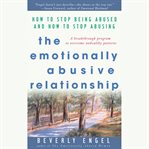Resources on Intimate Partner Violence
- Sara M.
- Saturday, April 13
Collection
Intimate partner violence (IPV) is abuse or aggression that occurs in a romantic relationship. “Intimate partner” refers to both current and former spouses and dating partners. IPV can vary in how often it happens and how severe it is. It can range from one episode of violence that could have lasting impact to chronic and severe episodes over multiple years. IPV can include any of the following types of behavior:
- Physical violence is when a person hurts or tries to hurt a partner by hitting, kicking, or using another type of physical force.
- Sexual violence is forcing or attempting to force a partner to take part in a sex act, sexual touching, or a non-physical sexual event (e.g., sexting) when the partner does not or cannot consent.
- Stalking is a pattern of repeated, unwanted attention and contact by a partner that causes fear or concern for one’s own safety or the safety of someone close to the victim.
- Psychological aggression is the use of verbal and non-verbal communication with the intent to harm another partner mentally or emotionally and/or to exert control over another partner.
(Source: CDC: Fast Facts: Preventing Intimate Partner Violence)
If you or someone you know is experiencing this, formerly known as domestic violence, you can get help. Here are some resources:
National Domestic Violence Hotline
Love is Respect National Teen Dating Abuse Helpline
Rape, Abuse & Incest National Network’s (RAINN) National Sexual Assault Hotline
In addition, here's a list of books on the topic that can help understand the issue and offer paths to help.

Not That Bad

Daily Wisdom for Why Does He Do That?



The Emotionally Abusive Relationship

I'm Saying No!


Scared to Leave Afraid to Stay

See What You Made Me Do

The Dance of Intimacy

The Dance of Connection

Psychopath Free

If He's So Great, Why Do I Feel So Bad?

On Violence and on Violence Against Women

Assume Nothing

Healing from Hidden Abuse

No Visible Bruises

Set Boundaries, Find Peace

Escape Points
